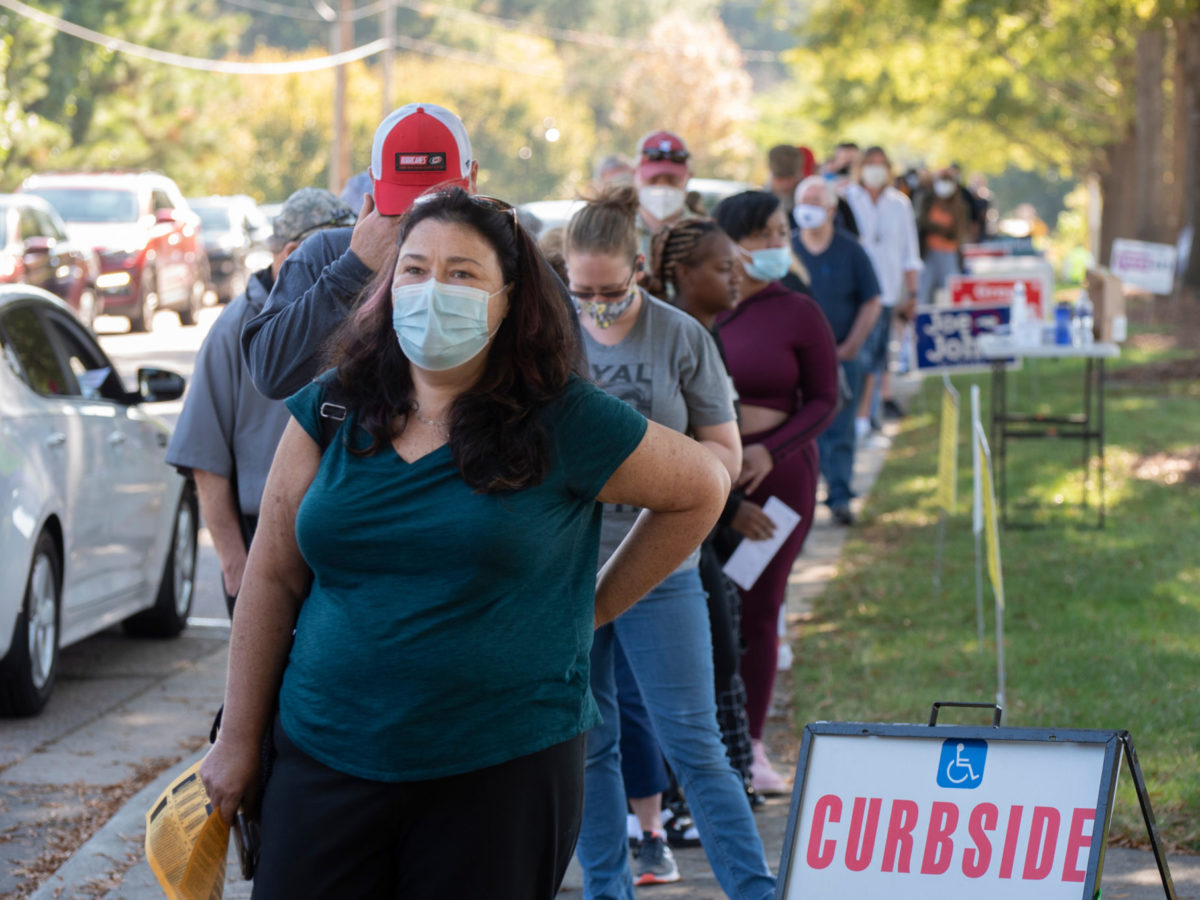

A grainy black-and-white film clip shows Huey Long, a classic populist turned autocratic governor, telling a story of a banjo-playing salesman offering two versions of patent medicine. One bottle contained High Popalorum, the other Low Popahirum.
What’s the difference? someone asked. Long relished finishing the story with a political taunt:
“That High Popalorum is made from the bark off the tree that we take from the top down. And that Low Popahirum is made from the bark that we take from the root up. And the only difference that I have found between the Democratic leadership and the Republican leadership was that one of ’em was skinning you from the ankle up and the other from the ear down.”
Long, who managed to hold both the Louisiana governor’s office and a U.S. Senate seat simultaneously in the 1930s, isn’t the only American politician to play upon skepticism and distrust within the electorate. In 1964, presidential nominee Barry Goldwater turned the Republican Party toward the right by promising “a choice not an echo.” In 1968, when he ran as a third-party presidential candidate, Alabama’s segregationist governor, George Wallace, sneered that there’s “not a dime’s worth of difference” between Republicans and Democrats.
Now in North Carolina, the year is 2020, not 1932, 1964, or 1968. Election 2020 offers voters more than bark off the same tree, more than an echo, more than a dime’s worth of difference between Democratic and Republican candidates.
Clearly, the coronavirus outbreak, which spikes again as cold weather approaches, has set the context for the election, as well as campaign debates over health care and education. The super-charged atmosphere arises from the presidential contest between the incendiary, break-the-norms Donald Trump and the veteran Washington insider, Joe Biden, who foresees himself conducting a transitional presidency. The 2020 election is regularly described as especially historic, as a fight for the soul of the country.
None of the 2020 elections in North Carolina has the feel of fights for the soul of the state as did the 1960 governor’s primary runoff between Terry Sanford and I. Beverly Lake or the 1984 Senate race between Jesse Helms and Jim Hunt. Still, voters are making high-stakes choices in styles of governance, as well as specific education and health policies, in casting their ballots for governor, U.S. senator, superintendent of public instruction, and state legislators.
The stalemate over the 2019 state budget presaged the clear lines drawn in the 2020 campaign. Democratic Gov. Roy Cooper, who is seeking re-election, vetoed the budget adopted by the Republican majority in the legislature. Democratic lawmakers had just enough strength to sustain the veto. A stalemate ensued over issues now in play across the state, as illustrated by the contentious, yet substantive, televised debate between Cooper and Republican Lt. Gov. Dan Forest.
Forest chided Cooper for his use of the veto, leaving teachers without a general pay raise. Cooper considered the GOP budget’s two-year 3.9% salary increase too small; he proposed raises of up to 9% over two years. Forest supports Republican legislators in expanding government subsidies for students in private schools. Cooper sought to limit budgeting more for subsidies.
Cooper follows a step-by-step approach, guided by COVID-19 trends, toward reopening schools. Forest calls for allowing all schools to choose full-time, in-person classes. For more on the debate and education issues, see EducationNC’s voter’s guide and The News & Observer’s debate coverage.
No doubt, the pandemic will persist beyond the election, deep into 2021. Voters have the duty to assess the character and leadership capacity of potential officeholders in responding to the public health and economic emergency. Still, the 2020 election poses choices not only between individual candidates but also about the direction of state and federal governments. North Carolina voters have a say in which party forms a majority in the U.S. Senate, and whether Republicans maintain or Democrats regain a state legislative majority.
The substantive differences in the politics of 2020 surely give North Carolina voters clearer choices than High Popalorum or Low Popahirum.


